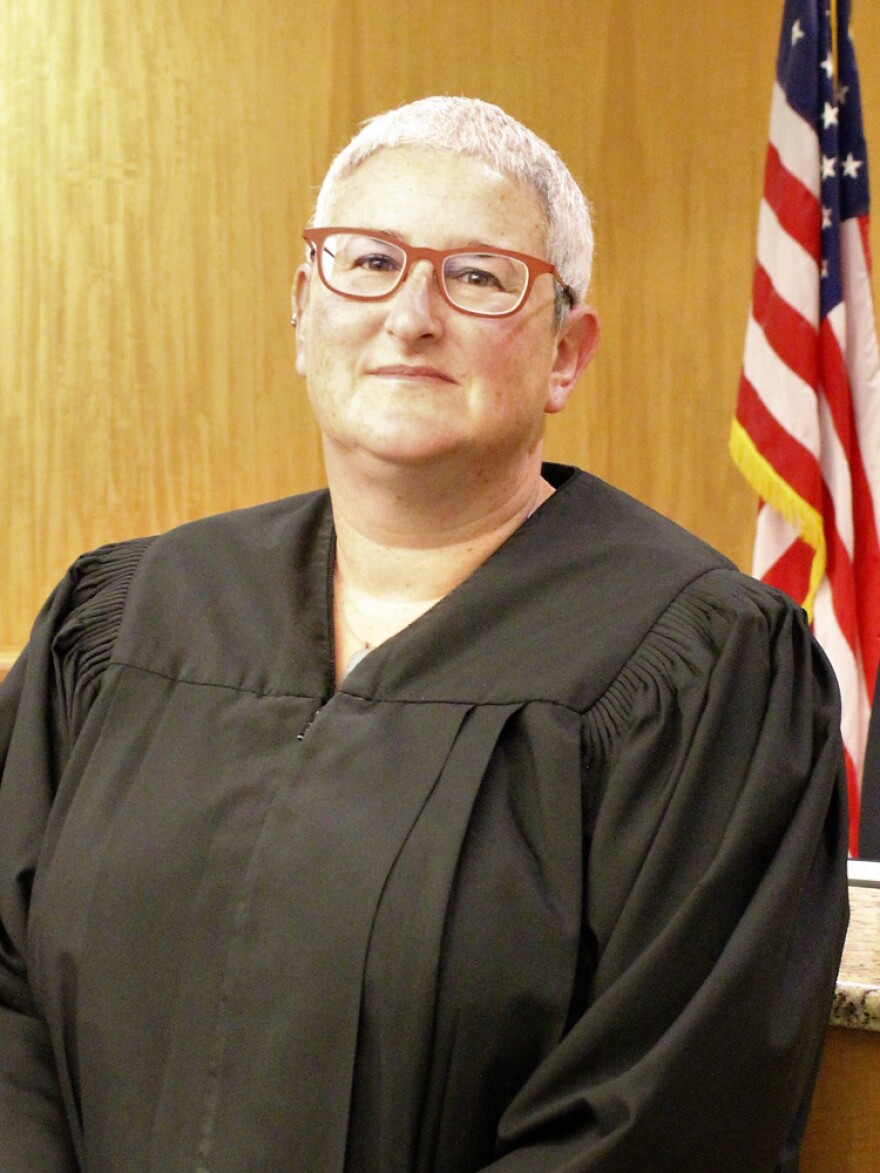Joel’s Law allows families in Washington state to petition a court to involuntarily commit a mentally ill loved one. In Pierce County, home to Tacoma, nearly 100 percent of petitions are granted, but in Seattle’s King County, most are rejected.
Pierce County Court Commissioner Craig Adams presides over civil mental health court in a small courtroom on the campus of Western State Hospital
Adams’ job is to decide if mental health patients meet the criteria for involuntary commitment under state law. The test is whether the person poses a danger to themselves or others or is gravely disabled.
Most of the time Adams is hearing from lawyers and mental health professionals. But once a month or so he gets a Joel’s Law petition from a family.
“It is usually due to some story that the family has about their family member being very mentally ill and not receiving what they believe to be appropriate intervention or treatment,” Adams says.
By the time a Joel’s Law petition is filed, a Designated Mental Health Professional, or DMHP, has decided the person doesn’t qualify for involuntary treatment. Adams must decide if that was the right decision or the wrong decision. In 90 percent of the cases he’s reviewed, Adams had sided with the family not the DMHP.
“So we’re saying ‘no, we think you need to detain that person,’” Adams said.
Why is this happening? Adams said in some cases the DMHPs are placing too high a bar for an initial 72-hour commitment.
“I think that they have committed an error on the side of being too conservative and not aggressive enough in at least referring the people for at least the 72 hour hold,” he said. “And that’s just my own prejudice after reading them.”
A very different story in King County?
For a startling contrast to Pierce County, consider what’s happening with Joel’s Law in King County. Of 57 Joel’s Law petitions filed there since the law took effect in 2015, only one has been granted.

Johanna Bender is a King County Superior Court judge who hears these petitions. ??
“I actually have a family member who has touched the involuntary mental health system himself, so I am very familiar with the pain and the fear and the uncertainty that goes along being the family member of a loved one in crisis,” she said.
But, Bender calls involuntarily commitment a “pretty radical deprivation” of civil liberty. ??
“There are times when it is very, very clear to me that the respondent is in a tremendous amount of crisis, that the family is in a tremendous amount of crisis, that there are very, very serious unmet treatment needs,” Bender said. “But that the law does not permit the use of involuntary hospitalization to meet those needs.”
Joel’s Law is named after Joel Reuter, a mentally ill man who was shot and killed by Seattle police in 2013. His father, Doug Reuter, is concerned with the track record of King County judges.
“There cannot be only one case that the DMHP in King County got wrong over a two year period,” he said.
And he has a theory on the dramatically different story in Pierce County.
“What it tells me is that there’s at least one judge in Pierce County, maybe more, that feels the way that I do about the DMHP and they don’t trust them,” Reuters said.
‘DMHPs are doing the best job they can’
As of March of this year, nearly two-thirds of Joel’s law petitions statewide were dismissed. Of those that were granted, most were in Pierce County. In Spokane County, only one Joel’s Law petition was granted through March of this year. In Vancouver’s Clark County, no petitions had been granted as of March.
“I believe our DMHPs are doing the best job they can,” said Silvia Riley, who oversees Pierce County’s DMHPs.
Riley said she’s been surprised at how many times her staff’s decisions have been overturned.
“We take very seriously the fact that we don’t want to take somebody’s rights away,” she said.
Riley said while she respects the court’s decisions, a couple of the Joel’s Law cases have been tough on her DMHPs.
“It kind of broke their heart,” she said. “Because this person’s like ‘why, why am I going there, I’ve been taking my medications.’”


